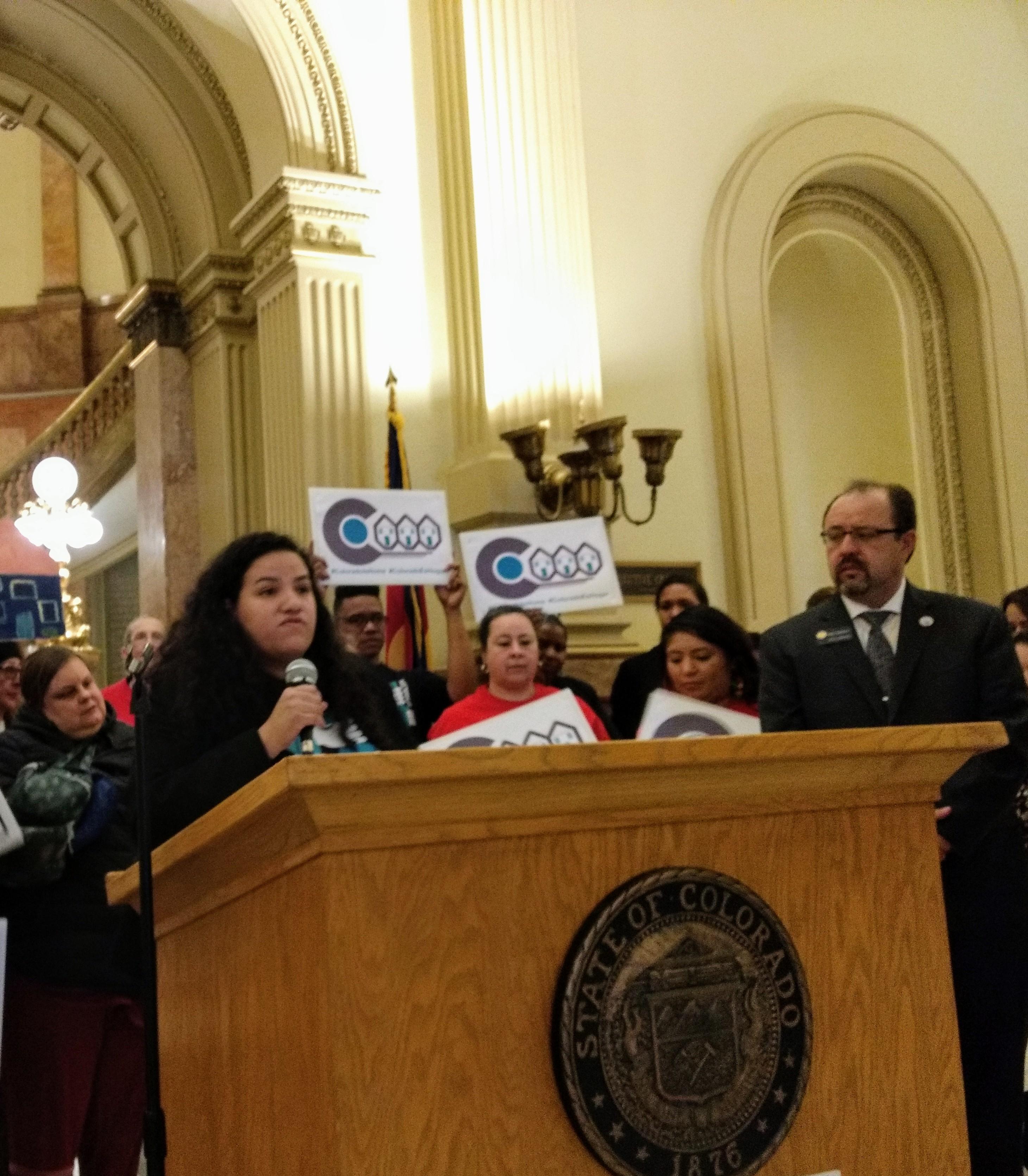If Denver policymakers had the power to impose rent control, Councilwoman At-large Robin Kniech said Monday, they'd start by talking to landlords and tenants about what could work.
Kniech led off four hours of testimony by more than 40 witnesses at the Capitol on a bill that would topple Colorado's nearly four-decade-old prohibition against rent control. The measure squeaked through its first committee 3-2 -- along party lines with Democrats in favor. Now that it has cleared the Senate State, Military and Veteran Affairs Committee, the bill introduced April 1 heads to the Committee of the Whole.
The main sponsor, Denver Democratic Sen. Julie Gonzales, amended Senate Bill 19-225 before the vote Monday evening to underline that her proposal to "Authorize Local Governments To Stabilize Rent" does not set a state standard. Witnesses on both sides of the debate seemed to assume that if the bill was passed it would mean some cities and counties would enact measures to cap how much rents could rise or require developers to include rent-controlled units in new projects.
Connie Rettig told the Senate committee of being displaced from the Denver-area apartment where she had lived for 15 years because her monthly rent was raised from $1,300 to $2,500. She said as a senior on a fixed income she could not afford such an increase from one year to the next. Relatives helped her find a new place.
"I have family. What about people who don't have family and are elderly?" she said. "These are supposed to be our golden years. Not our homeless years."
Opponents argued rent control would exacerbate the problem.
"If you hold down the price of something, less of it will be supplied," Teo Nicolais, a landlord and real estate expert, told the senators. "We do need more supply and we need a wider variety of supply."
Nicolais was among several witnesses who argued that landlords unable to decide on rent increases for themselves might not be able to keep ahead of costs such as taxes and maintenance. They could end up selling property to people who want to live in the units or otherwise change the use. Removing units from the rental market would push rents up, the senators heard Monday.
Kniech said policymakers would have a conversation involving all stakeholders in search of solutions that helped tenants without preventing entrepreneurs from making a profit.
"Local governments have no incentive to pass bills that will put developers out of business," said Kniech, who was joined in supporting the bill by her city council colleague Paul López.
Landlords and others representing business interests said that instead of considering rent control, government should work with them to find other solutions such as subsidies for tenants. A few tenants also opposed allowing rent control, saying that landlords constrained from charging the rents they desired might not maintain their properties. Renter Zachary Jacobs argued the answer was allowing the market to balance itself.
One landlord spoke in favor of rent control. Amanda Gonzalez said she hasn't increased the rent on the house she rents out in Edgewater since 2015.
"Stabilized rent means that I don't have as much turnover and, therefore, I have fewer days or months of vacancy while people move in and out," she said. "In the long run if the renters who live in my home and in my community don't have to constantly move and are able to predict and plan for the housing costs they are more able participate in community and civic life."
Sen. Gonzales said her approach makes sense in a state that values local control and would give places like Denver more tools with which to address what both proponents and opponents of her proposal described as an affordable housing crisis.













